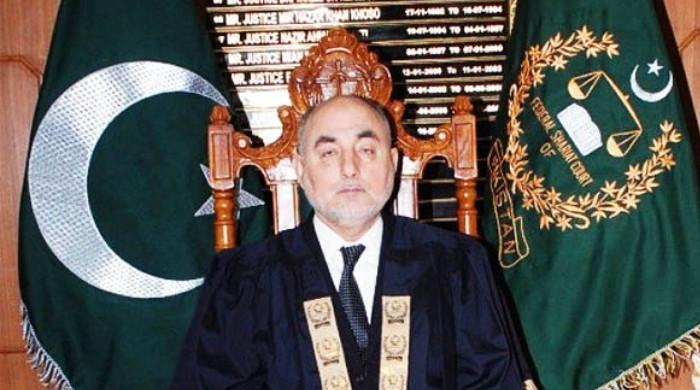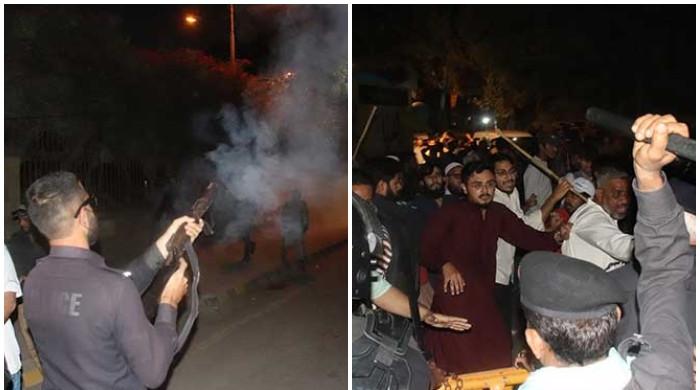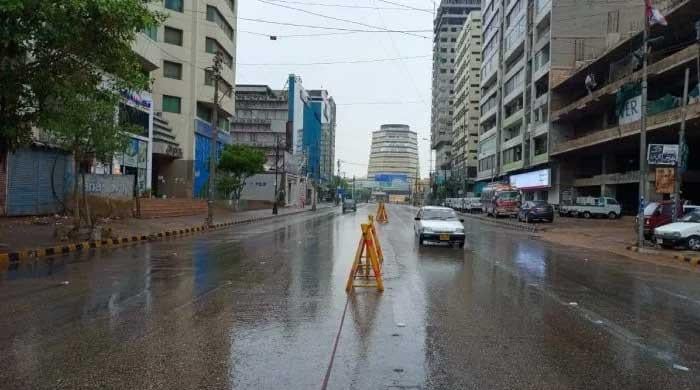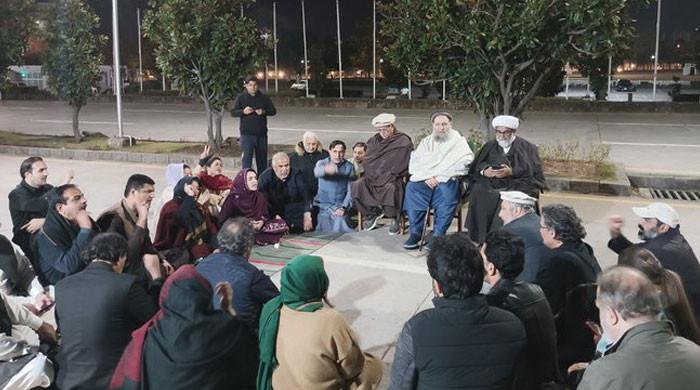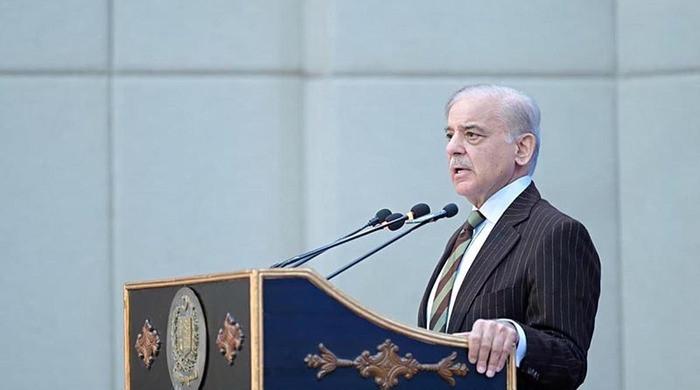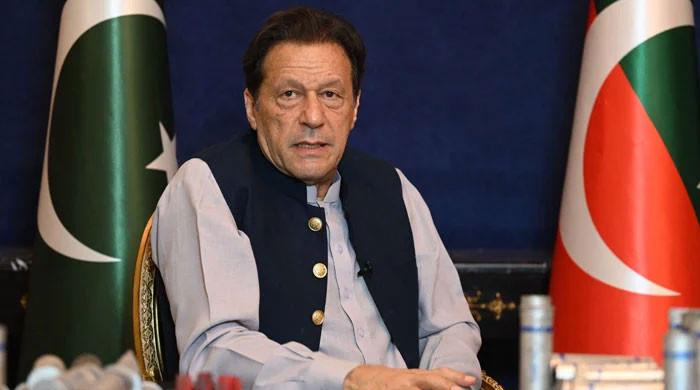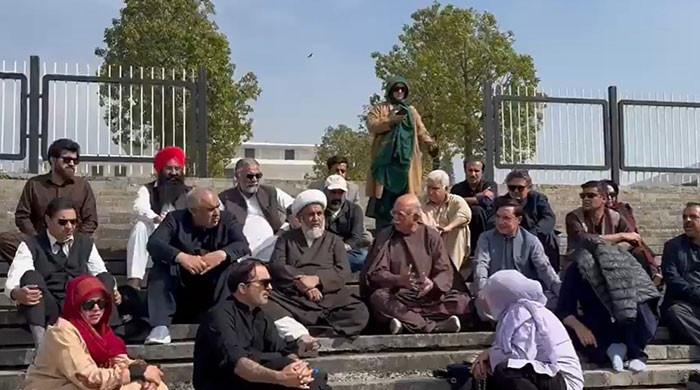Pakistan to review policy on Afghan refugees
The KP IG says arrival of Afghan nationals in Pakistan will be regulated
February 05, 2023
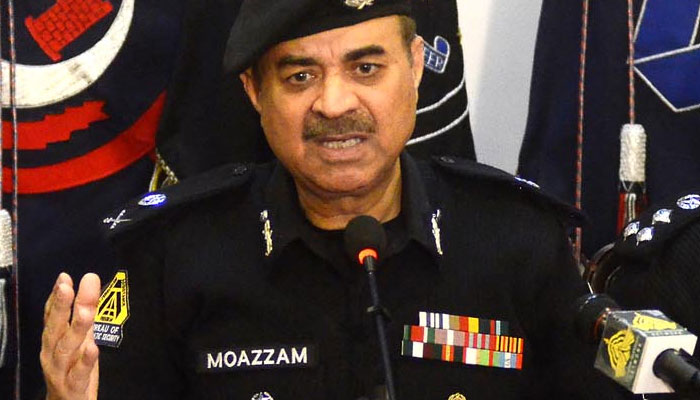
- Pakistan will review its policy on Afghan refugees, says KP IG.
- Says arrival of Afghan nationals will be regulated.
- Says all illegal Afghans living in Pakistan will be deported.
PESHAWAR: The apex committee has decided to review its policy on Afghan refugees, shared Khyber Pakhtunkhwa Inspector General of Police Moazzam Jah Ansari.
The arrival of Afghan nationals in Pakistan will be regulated, so that they can be sent back after expiry of their visas. Several hundred thousand people came to Pakistan with a valid visa but did not return to their country. All illegal Afghans in the country will also be deported.
The committee, headed by Prime Minister Shehbaz Sharif, has given the direction. It also decided to raise the terrorism issue with the Taliban-led Afghan government.
The IGP said that Afghan refugees living under the law will not be harassed and they can stay in Pakistan because they have UN Proof of Registration (POR) Card and other relevant documents. But illegal Afghan refugees do not have the right to stay in Pakistan, he added.
Ansari said that in the apex committee meeting, it was decided to regulate the Afghan refugees because most of them do not go back to their country. Therefore, it was decided that action would be taken against Afghan refugees living illegally and all unlawful Afghan nationals would be deported. In addition, asylum seekers under UNHCR, Afghan refugees with refugee cards and Afghan citizens on visas will also be regulated.
He said that under the new policy, the Afghan nationals who come to Pakistan, will inform the police about their place of stay. The FIA and police will check whether Afghan nationals are available at the address or not. Furthermore, they will have to provide a local guarantor in Pakistan for visa purpose and stay.
“There is no justification for the Afghan refugees living illegally and coming without passport and visa, such people will be arrested and deported,” the IGP reiterated.
He said that Peshawar Police have come close to those involved in the blast and important progress would be made soon in this case.
Pakistan vows to eliminate terror outfits, facilitators
Apart from the decision on refugees, the apex committee had agreed that the centre and provinces would adopt a uniform strategy to counter terrorism and eliminate the internal facilitators of militants.
In the wake of the deadly suicide blast inside the Police Lines area's mosque, the meeting — chaired by Prime Minister Shehbaz Sharif with Chief of Army Staff General Asim Munir also in attendance at the Governor's House — directed the concerned authorities to devise an effective strategy in this regard.
The meeting also agreed to abolish all the sources assisting the terrorists in the country and directed effective screening, a statement from the PM's Office said.
Adopting a zero-tolerance approach against all kinds of terrorism would be the national motto, while implementation of the decisions would be ensured by national consensus, the huddle decided, according to the statement.
The meeting reviewed in detail the incidents of terrorism, particularly the attack on Police Lines and the situation that followed during which representatives of intelligence agencies briefed the committee on the overall security situation and operations against terrorists in the country.
Khyber Pakhtunkhwa Inspector-General of Police Muazzam Jah Ansari also updated participants of the meeting regarding the investigation of the Police Lines blast and the progress made so far. Ansari informed attendees about the way and routes of the attacker’s arrival in the area, which the police has identified through videos.
The meeting also hailed the prime minister for convening the all parties conference (APC) after the rise in terrorism, hoping that the political leadership would sit together at the table to end terrorism and would decide on steps through national consensus.
The body also appealed to religious scholars to play their role in eradicating terrorism. Ulema were urged to create awareness among the masses against such attacks which are "haram" [prohibited in Islam] and against the teachings of the Holy Quran and Sunnah.
Those who shed the blood of innocents have nothing to do with Islamabad, the statement said.




